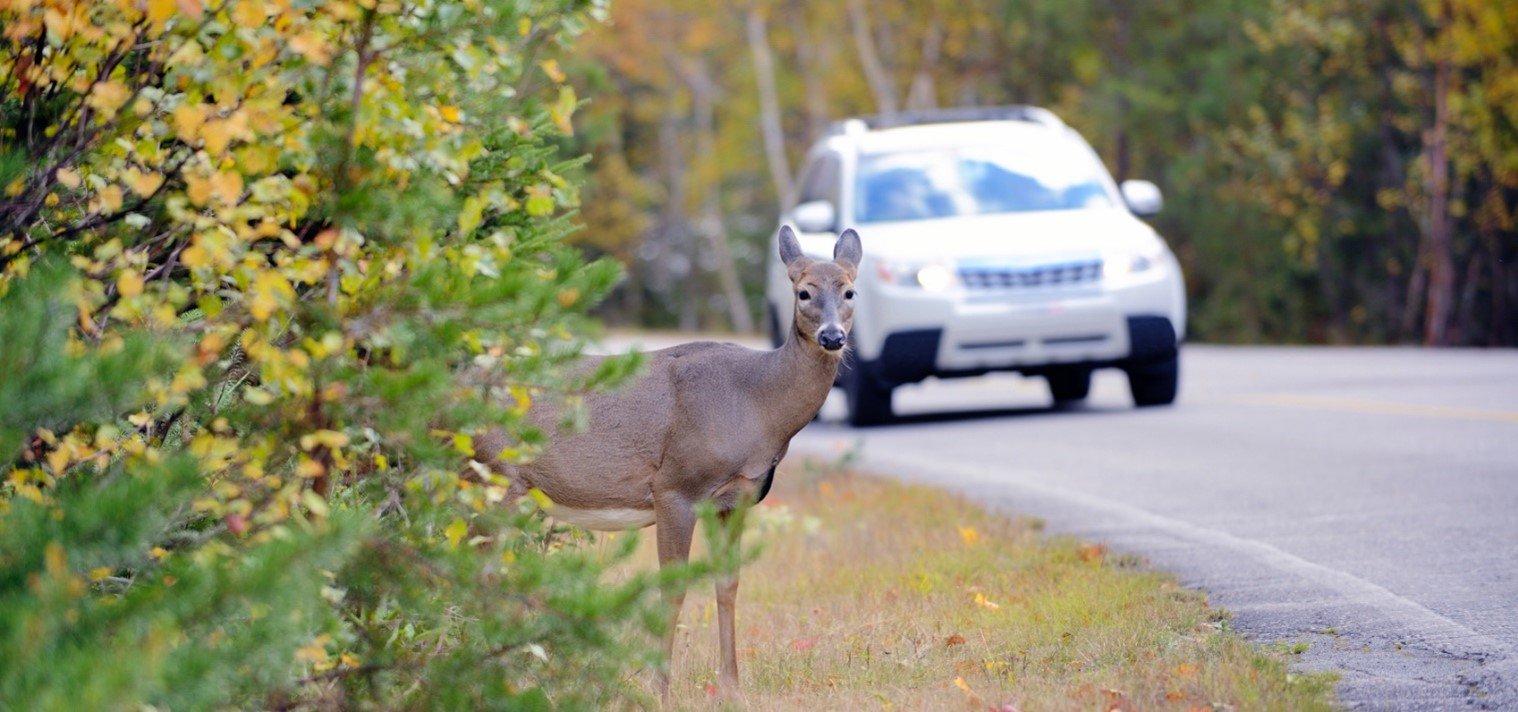By order of Sheriff Darren Weekly, Stage 1 Fire Restrictions are in place for unincorporated areas of Douglas County. Ordinance No. O-012-004 restricts open fires, open burning, and the use of fireworks in the unincorporated areas of Douglas County.
By order of Sheriff Darren Weekly, Stage 1 Fire Restrictions are in place for unincorporated areas of Douglas County. Ordinance No. O-012-004 restricts open fires, open burning, and the use of fireworks in the unincorporated areas of Douglas County.
In observance of Christmas, all Douglas County offices will close at noon on Wednesday, Dec. 24, and will be closed for the entire day on Thursday, Dec. 25, 2025. Offices will reopen at 8 a.m. on Friday, Dec. 26, for normal business. Many County services are available 24/7 by visiting online services.
Partnership projects in Douglas County help protect wildlife, keep motorists safe as daylight diminishes
Posted on November 3, 2023 2023DC OutdoorsNews and Events

Information courtesy of Colorado Department of Transportation, Colorado Parks and Wildlife and Douglas County
Changing your clocks with your driving habits during daylight saving time can help prevent wildlife-vehicle collisions. Wildlife experts advise drivers that wildlife is on the move so be aware, drive with caution, and slow down at night.
This Sunday, Nov. 5, marks the end of daylight saving time in Colorado. This means drivers will set their clocks back an hour, see dusk earlier, and witness more wild animals migrating to their wintering habitats during rush-hour traffic on highways.
As the sunlight fades during high-volume commutes, Colorado Parks and Wildlife asks drivers to stay alert and share roads with wildlife. Autumn is the peak seasonal mating and migration time for many species, so drivers should watch for wildlife as they begin to experience darker commutes.
The Colorado Department of Transportation also advises motorists to stay vigilant, drive with caution and slow down, as winter storms often push wildlife from the high country into lower elevations. Drivers should be aware of animals in town, on county roads and on highways.
Mitigation Projects in Douglas County
To decrease the number of wildlife-vehicle collisions in Colorado, CDOT and CPW have partnered with Douglas County on several projects:
Douglas County was honored to host the 2023 Wildlife and Transportation Summit, which brought together the statewide partners of The Colorado Wildlife and Transportation Alliance to discuss additional ways to reduce animal-vehicle collisions.
The I-25 Castle Rock to Lone Tree wildlife fencing project is complete. Partners on this project include CDOT, CPW, City of Castle Pines, Douglas County, and the Town of Castle Rock.
The I-25 South Gap project included four wildlife crossings and more than 30 miles of deer fencing. Partners on this project included CDOT, Douglas County, El Paso County and the Pikes Peak Rural Transportation Authority.
CPW and CDOT actively monitor wildlife data statewide to identify highway mitigation projects to protect our wildlife and keep Colorado motorists safe. For more on their statewide efforts, read their full news release.
Be among the first to receive news as it happens. Subscribe to our online news push, and select your specific news focus and delivery preferences. Visit the Live Town Hall page and register for Town Hall notifications to ensure you are contacted to participate in future community conversations about topics important to you. Both services are free, and you can unsubscribe at any time. And don’t forget to follow Douglas County on Nextdoor, Facebook, Twitter, Instagram, LinkedIn and YouTube.
Sign Up Now!